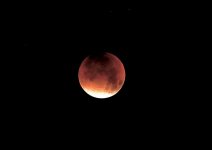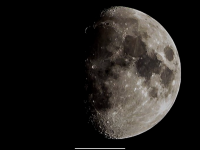- Messages
- 7
- Name
- Roger
- Edit My Images
- No
Hi
A few years back I owned some very nice canon kit as I shot weddings , we then moved and to buy stuff to renovate I sold everything . A year ago I was diagnosed with stage 4 lung and bone cancer.
not doing too badly and this isn’t a request for sympath. It’s a request for help with Astro pho.
ive brought a Nikon D780 that came with a 24-120mm , I’ll more likely sell this ... but just brought a 28-300. As I’m shooting my friends wedding next year. So looking at a few more bits.
but I’m interested in Astro as a hobby as we also purchased a VW camper van (lifestyle change) due to insurance with cancer.
im looking at trackers to Mount camera or full on telescope to attach camera. I’m looking at software ,is there dedicated idiot proof software beside photoshop as it all looks
mind blowing because I’m on chemotherapy every 3 weeks and brain really does get confused quickly now, so learn step one and two and I’ve lost step one, get to step 20
ive forgotten the first 19 .
.
So I’m after recommending for trackers v full on scope , budget no more that £1500 I’d say. And a stand alone soft ware for edits for my haggled brain.
sorry if this is posted in the wrong place , but I’ve looked and looked and can’t find anywhere else to post on this.. if it’s wrong and some one could move it that would help.
hope it all makes sense
Cheers
Roger
A few years back I owned some very nice canon kit as I shot weddings , we then moved and to buy stuff to renovate I sold everything . A year ago I was diagnosed with stage 4 lung and bone cancer.
not doing too badly and this isn’t a request for sympath. It’s a request for help with Astro pho.
ive brought a Nikon D780 that came with a 24-120mm , I’ll more likely sell this ... but just brought a 28-300. As I’m shooting my friends wedding next year. So looking at a few more bits.
but I’m interested in Astro as a hobby as we also purchased a VW camper van (lifestyle change) due to insurance with cancer.
im looking at trackers to Mount camera or full on telescope to attach camera. I’m looking at software ,is there dedicated idiot proof software beside photoshop as it all looks
mind blowing because I’m on chemotherapy every 3 weeks and brain really does get confused quickly now, so learn step one and two and I’ve lost step one, get to step 20
ive forgotten the first 19
So I’m after recommending for trackers v full on scope , budget no more that £1500 I’d say. And a stand alone soft ware for edits for my haggled brain.
sorry if this is posted in the wrong place , but I’ve looked and looked and can’t find anywhere else to post on this.. if it’s wrong and some one could move it that would help.
hope it all makes sense
Cheers
Roger



